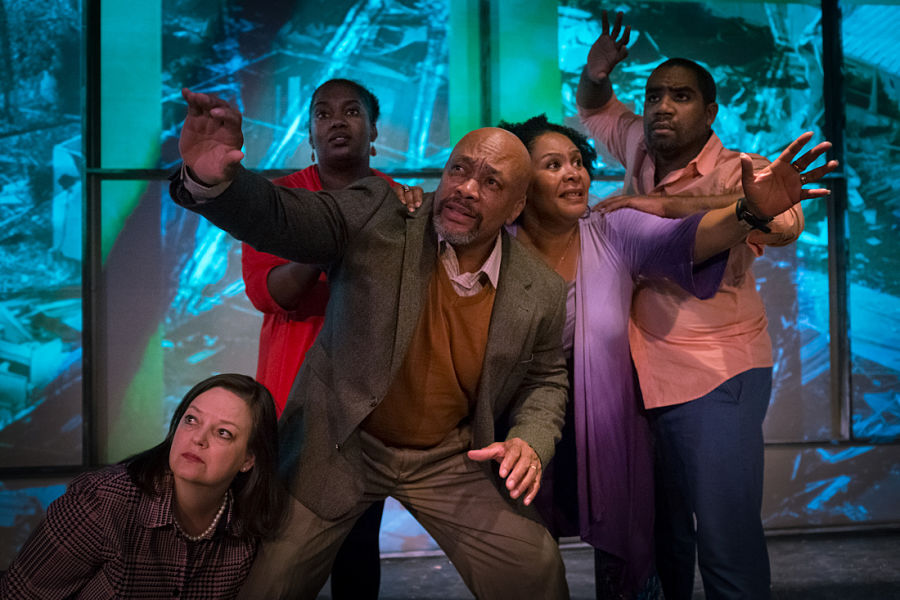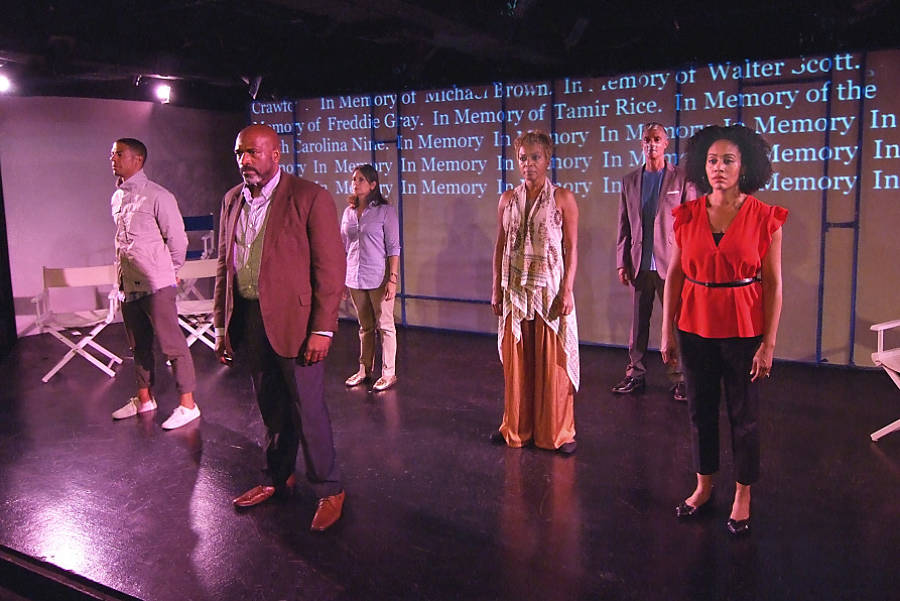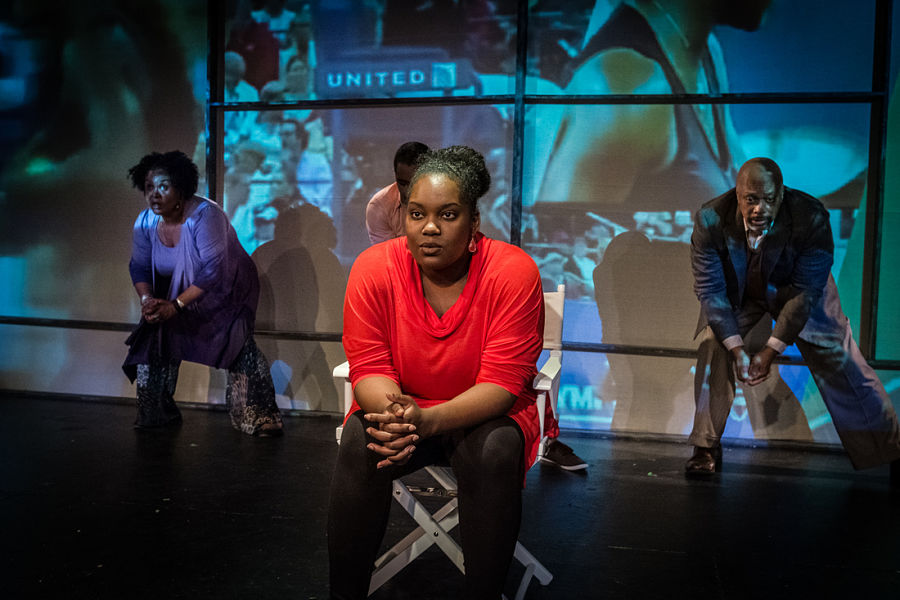On June 17, 2015, Dylann Roof walked up the front steps of Mother Emanuel AME Church in Charleston, S.C., and asked to join a Bible study group that met there each week. Many times I’ve imagined that first encounter between Roof and those who in less than two hours would become his victims. The parishioners must have registered some surprise at seeing a young white man asking to join them for the evening. In those first moments when they stood before each other, he must have seemed awkward and nervous. He was dressed in a long-sleeved shirt and dark pants—a strange choice for June in Charleston. He must have seemed, if not dangerous, then certainly not quite right.
But those who gather in houses of worship on summer evenings do not make judgments, and they probably welcomed him. I believe that they did their best to make him feel comfortable and included. And if what I imagine is true—that it was their purposeful and generous kindness that allowed them to welcome the devil—it is all the more heartbreaking to think they might have even seen a tiny suggestion of hope in him. Is it possible that in that moment, Roof’s presence on their threshold gave them the idea that things might be changing for the better? That Mother Emanuel might be becoming what we hope our houses of worship—be they churches, synagogues, temples, mosques, or theatres—might be? A place where all feel so truly welcome that even the uninitiated can take that great leap of faith and join us?
My two youngest children go to school directly across the street from Mother Emmanuel Church, at Buist Academy for Advanced Studies, which was founded as an all-black elementary school in 1920. In the mid-’80s, with a district mandated 60/40 racial quota in place to comply with federal desegregation laws, Buist became Charleston County’s first magnet school. Buist quickly became one of the top performing elementary and middle schools in the state and one of the top-ranked primary schools in the country. In 2003, the constitutionality of the quota was challenged by a former school board member at the behest of several disgruntled white parents whose children were denied admission. The racial balancing was eliminated, and today Buist Academy is more than three-quarters white.
Looking out the windows of the street-facing classrooms toward the church, I always see new bunches of fresh flowers, and trinket memorials appear daily, tucked between the wrought iron gate that keeps out the curious. Inside the school, shortsighted and myopic self-interest creates a different kind of tragedy: a slow-moving tragedy in which segregation is perpetuated, communities are whitewashed, resources are horded, and the development of a good society is hampered. As the mother of five children, two of whom were students at Buist before the effects of the elimination of the quota system could be seen or felt, I can say: Buist was a better school then. It looked more like Charleston. It spoke more like Charleston. It thought more like Charleston. Because it was more like Charleston.
These are merely two stories in an unimaginably large volume that tells the tale of race in the city I know, and have come to love as deeply as a person can love a place. This year marks 30 years of my life in the South; I’ve called Charleston home for more than 25 of those years. Although I am not from this place, I am of this place, and if I can use my theatre company, PURE Theatre, to leave Charleston better than I found it, that’s time well spent.

Charleston is a city that is lauded time and again for its charm, grace, beauty, history, and arts. But for all that is lovely and oddly cosmopolitan about this tiny Eden by the sea, I believe that a wicked combination of our unfailing politeness and an adherence to backward conditioning that will not allow us to discuss what is broken means that we refuse to have a conversation about race. The question then becomes: What can we as theatre artists do to spark the conversation? How do we begin the vibration that results in real dialogue about what is happening here? By here, I don’t just mean Charleston, I mean everywhere: Baltimore, Los Angeles, Ferguson, Mo., Sanford, Fl., Hempstead, N.Y. and every city and town in the nation. It took a tragedy that exploded across international headlines for me to recognize that what has choked back my voice was insidious, compliant silence.
In the days, weeks, and months following the shooting, we grieved, marched, and expressed our collective outrage and unity as a family. Yet as a company we had no words. We had no vehicle. We literally had nothing to say. We supported other art forms as they came forth and gave voice through music, movement, spoken word, and imagery to Charleston’s collective sorrow, rage, and shame, while we sought out the way in which we could be most useful to our community.
This week, within a few days of the one-year anniversary of the Mother Emanuel killings, we’re opening a play that speaks not only to this silence but to the condition of race in this country: Citizen: An American Lyric. Based on an award-winning book of poetry by Claudia Rankine, it has been adapted for the stage by Stephen Sachs. It premiered at Sachs’s theatre, Los Angeles’s Fountain Theatre, in a production directed by Shirley Jo Finney, just weeks after the Mother Emanuel shooting; Finney also directs our production.
For me, Citizen is an affirmation of the power and necessity of our art form. Running just over an hour, the play is a rapid-fire ride through the quotidian offenses experienced by people of color in this country. It is an uncensored look at what it means to be a citizen in a nation in which yours is not the dominant culture.

Citizen came to PURE through the divine channels that seem to connect theatre artists, and is an example of the love between one theatre company and another. The night of the shooting, sirens exploded through an evening rehearsal of Joshua Harmon’s Bad Jews, as responders rushed to the scene, just four blocks from the theatre. The next day in Los Angeles, the Fountain put its rehearsals aside to grieve and mourn the nine victims who would need to be added to the devastating memorial to victims of hate, violence, and brutality that occurs three-quarters of the way through Citizen.
Bernard K. Addison was among the Fountain Theatre’s cast of Citizen, but he’s also a native of South Carolina who now happens to call Los Angeles home. He was born and raised and was first introduced to theatre in Columbia, S.C., where the Confederate flag flew for more than 50 years over the state capitol grounds in a Dixiecratic show of commemoration of white supremacy and segregation. When Bernard heard news of the tragedy, he reached out to Erin Wilson, an ensemble member at PURE, to tell her about the piece he was working on, in the hopes it might play a part in healing.
A fusion of poetry, theatre, imagery, and sound, Citizen is an unflinching howl against racism, trumpeting the truth that while the color of someone’s skin may be the first thing we see, it should never be the only thing we remember. And Citizen turned out to be the voice we were seeking, the spark to ignite the dialogue, and the platform from which to launch our awareness of the wounds and indignities that keep us firmly and silently rooted in division.
The Zen Buddhist teacher Shunryu Suzuki once said, “In the beginner’s mind there are many possibilities, but in the expert’s mind there are few.” As a director, artistic director, mother, partner, daughter, sister, and citizen, my beginner’s mind is the best part of me—it is the part of me that rises in the morning lighthearted in the belief that anything and everything is truly possible. Yet it is my expert’s mind that knows that Citizen: An American Lyric, as insightful and beautiful and inspired as it may be, can only ever mark the smallest of steps in a journey whose end I will likely never see. If our days can give birth to the Dylann Roofs, Michael Slaters, and George Zimmermans of the world, those whose acts warrant social media storms and global headlines, I have to believe that we can also propel the voices of those whose actions are gentler, more positive ones. I have to believe that theatre is enough to begin the vibration that starts the conversation, one voice at a time.
Sharon Graci is the artistic director of PURE Theatre.



